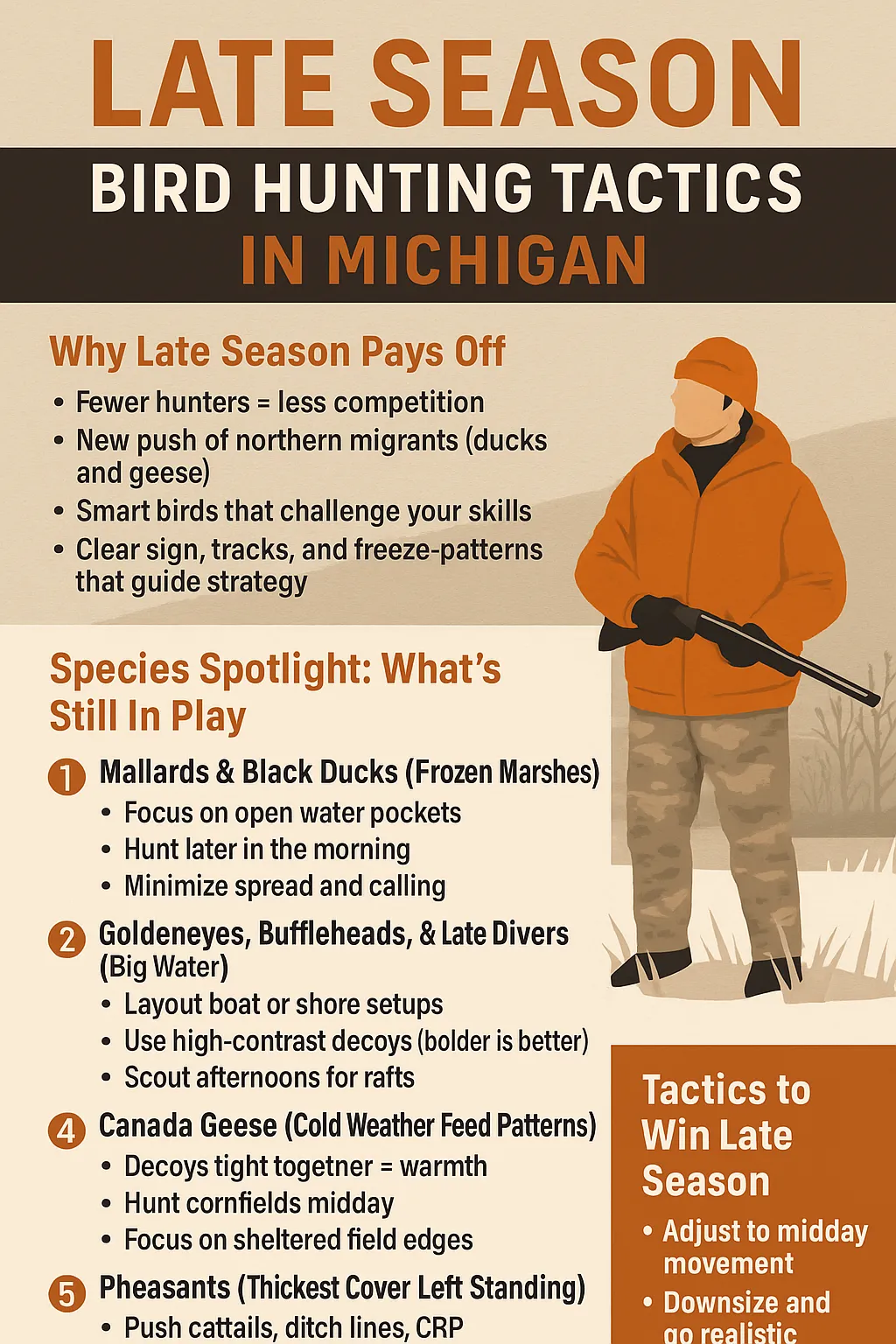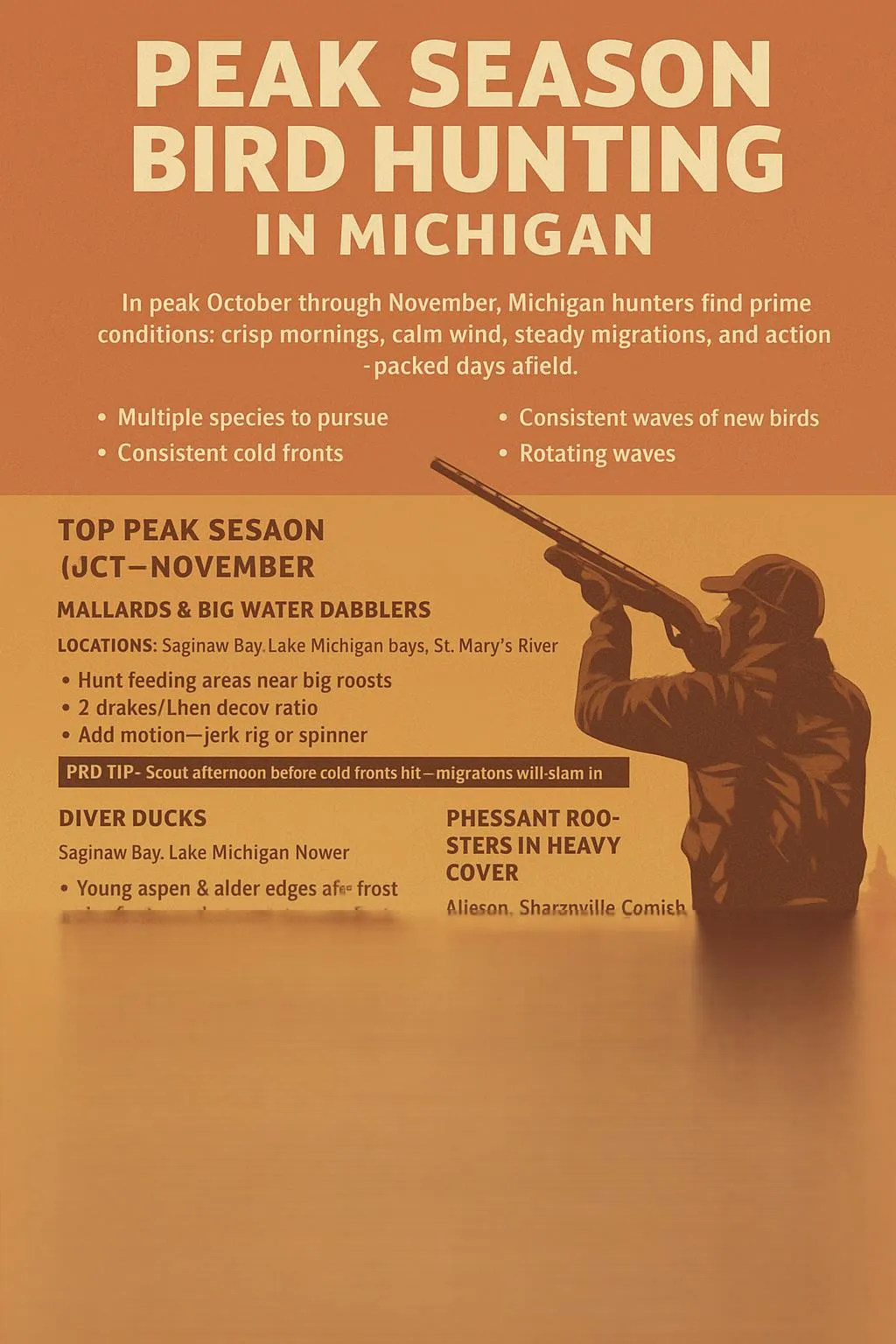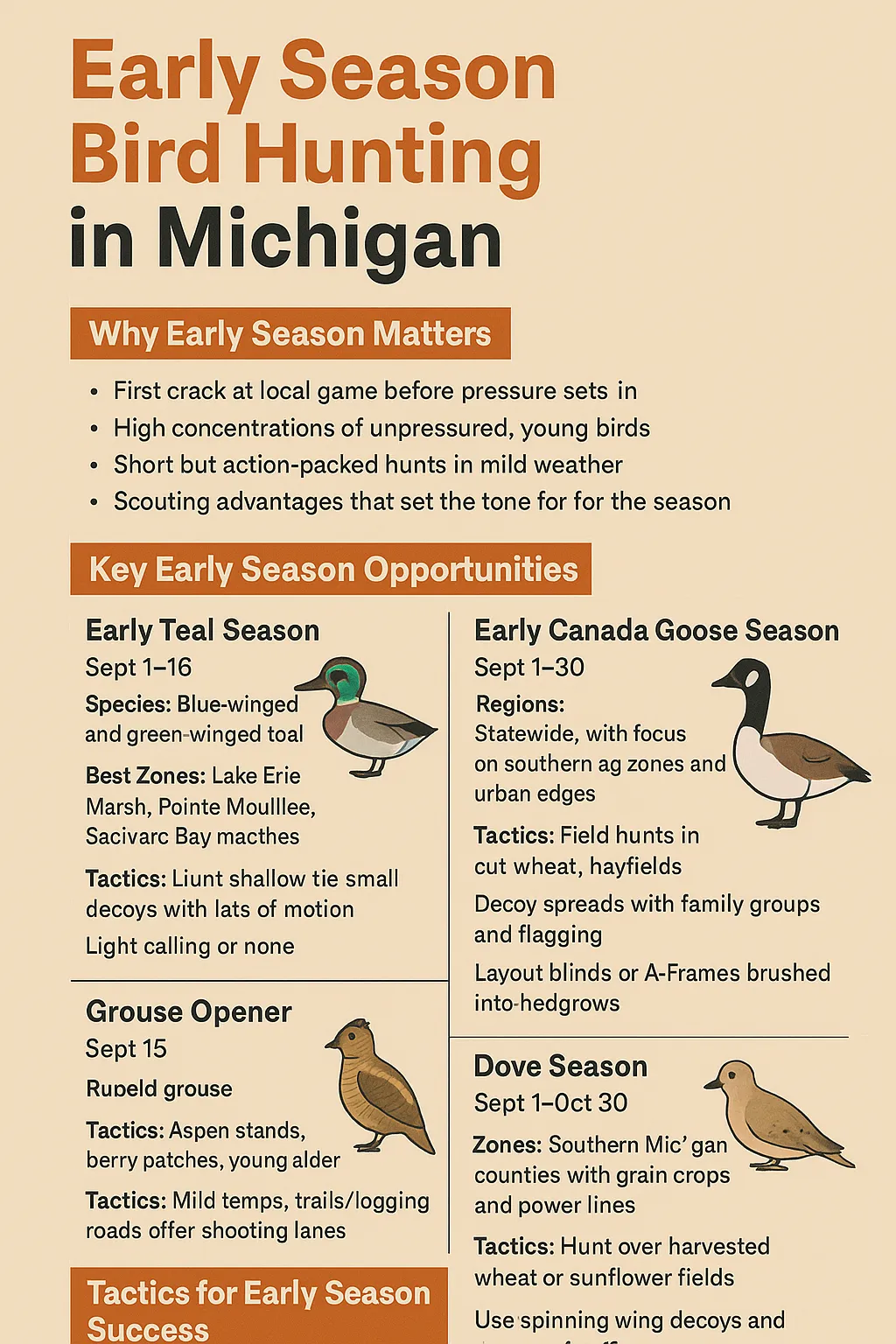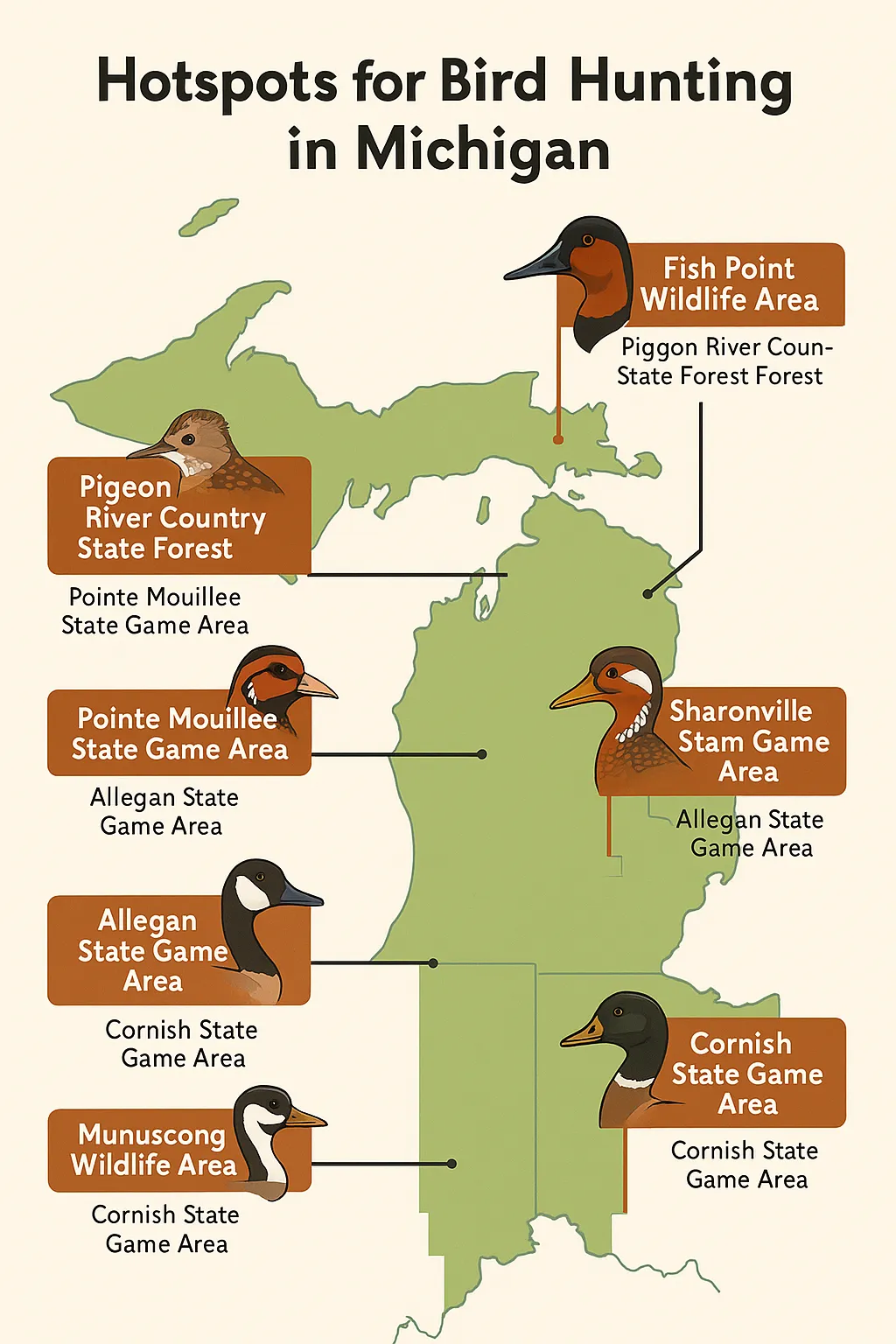
Late Season Bird Hunting Tactics in Michigan
The leaves have fallen, the frost is firm, and the birds that remain are smart, skittish, and winter-hardened. Late season bird hunting in Michigan isn’t for the faint of heart—it’s for those who endure, adapt, and thrive when the conditions bite. But for the prepared hunter, these frozen weeks can produce some of the most satisfying hunts of the year.
Why Late Season Hunting Pays Off
Late season offers:
-
Fewer hunters = less competition
-
New push of northern migrants (ducks and geese)
-
Smart birds that challenge your skills
-
Clear sign, tracks, and freeze-patterns that guide strategy
Species Spotlight: What’s Still In Play
1. Mallards & Black Ducks (Frozen Marshes & Rivers)
-
Where: Grand River, Muskegon River, Huron River, open spring-fed creeks
-
Tactics:
-
Focus on pockets of moving water where ice hasn’t sealed
-
Hunt later in the morning when birds leave roost to feed
-
Use fewer, highly realistic decoys—soft calling, no spinning wings
-
-
Pro Tip: Look for birds loafing in sunny pockets; pressure makes them mid-day feeders.
2. Goldeneyes, Buffleheads, & Late Divers (Big Water)
-
Where: Saginaw Bay, Lake Michigan bays, Lake St. Clair
-
Tactics:
-
Layout boats or shore ambush points on leeward side
-
Use high-contrast decoys (black & white)
-
Focus on wind-protected coves where birds raft overnight
-
-
Pro Tip: Scout in afternoon to locate roost flocks, then set before sunrise next day.
3. Canada Geese (Cold Weather Feed Patterns)
-
Where: Cut cornfields, pond edges with open leads, golf courses (where legal)
-
Tactics:
-
Set decoys tight together for warmth mimicry
-
Hunt midday when geese leave loafing water to feed
-
Use low-profile blinds in snow or stubble with snow covers
-
-
Pro Tip: Use sleeper shell decoys to suggest safety and warmth.
4. Pheasants (Thickest Cover Left Standing)
-
Where: CRP edges, cattail sloughs, ditch lines, abandoned fields
-
Tactics:
-
Push slow and steady—birds run before flushing
-
Hunt late morning to afternoon as frost lifts
-
Hunt in pairs or with blockers—birds backtrack fast
-
-
Pro Tip: Snow on the ground? Track them. You’ll often catch roosters holding in cover.
5. Grouse & Woodcock (U.P. & Northern Edge)
-
Where: Evergreen-lined edges, sunny hillside thickets, conifer pockets
-
Tactics:
-
Birds are bunched—cover ground to find the pockets
-
Hunt areas with nearby food: berries, buds, or grit
-
Go slow—birds hold tight in cold weather
-
-
Pro Tip: Fresh snow makes for perfect tracking and dog scenting.
Tactics to Win Late Season
1. Adjust to Midday Movement
-
Birds conserve energy early
-
Sleep in, hunt 9 a.m. to 2 p.m.
-
Setups should emphasize food sources and sunlit shelter
2. Downsize and Go Realistic
-
Late season birds are call- and decoy-wary
-
Small spreads with flock spacing > large showy setups
-
Use ultra-detailed decoys and natural calling sequences
3. Weather-Read Your Hunts
-
South winds = rest days
-
Fresh snow or north winds = go time
-
Warmups after single-digit nights = afternoon feeding frenzy
Gear Up for Cold-Weather Hunts
| Gear | Why It Matters |
|---|---|
| Insulated breathable waders | Frozen water is unforgiving |
| Handwarmers & thermos | Stay sharp and focused |
| Snow camo wraps | Concealment in stubble, marsh, or fields |
| Waterproof blind bag | Gear stays dry even in deep snow |
| Layered merino base gear | Warmth without bulk for hiking coverts |
Conservation Corner
Winter birds need:
-
Undisturbed roosts—don’t shoot evening roost spots
-
Clean water and standing cover
-
Support late-season wildlife via:
-
Ducks Unlimited Frozen Marsh Projects
-
CRP Restoration by Pheasants Forever
-
State-funded cold-weather roost protection zones
-
Conclusion: Finish Strong
Late season bird hunting in Michigan is tough. It’s cold. It’s quiet. But it’s also pure. It strips the hunt to its rawest form—no hype, no crowds, just you, the birds, and the weather. And when you outthink a cold-front flock or coax a rooster from snow-heavy grass, you’ll know the effort was worth it.
“Late season doesn’t forgive mistakes. But it rewards those who read the sign, know the weather, and never stop learning the land.”
Leave A Comment
Related Posts
Early Season Bird Hunting in Michigan Before the frost settles […]
Hotspots for Bird Hunting in Michigan Whether you’re tracking a […]








